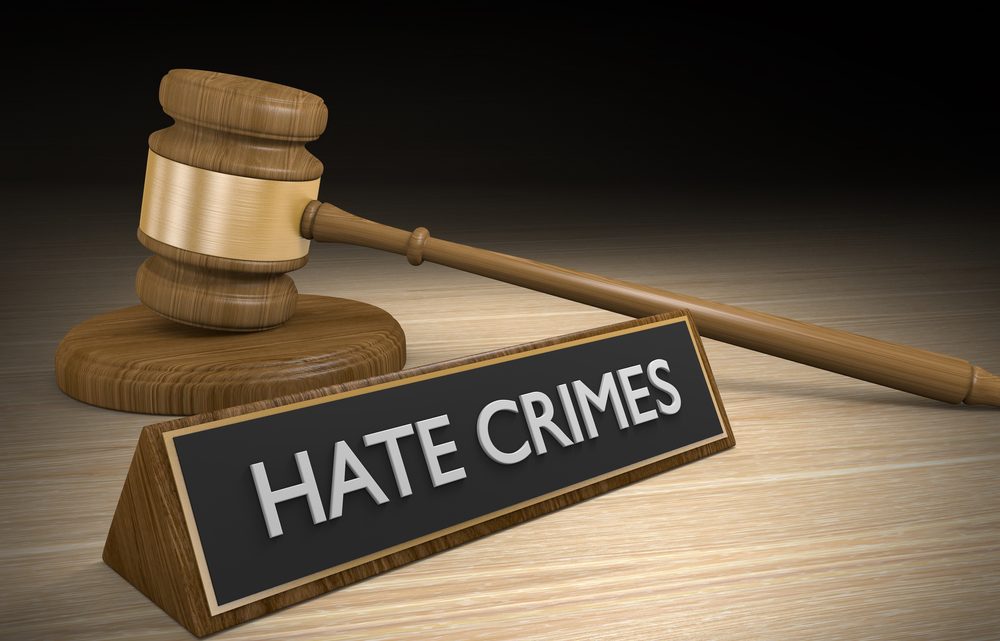by Abdul-Hakim Shabazz
As Indiana lawmakers get ready to tackle the issue of “hate/bias crimes” this session, I think it’s only fair to address the concerns raised by critics and skeptics. I believe I can do this as I used to be one of them and to a small degree, I still am, but I think the good the law can do, outweighs my skepticism.
I recently asked on my social media page for critics to spell out their concerns and so I summarized them into several categories and will address them one by one. And just so we are all on the same page, we are looking at hate crimes as a sentence enhancer or aggravating factor, not as a separate offense.
- Hate crimes “punish thought.” – Of course, they do, just like most laws that carry a serious penalty for breach carry a penalty, but an individual must also act on those thoughts. In criminal law, to have a crime for many offenses, you need a “mens rea” (Intent) and an “actus rea” (act). This is why with many crimes, an element is the perpetrator must “knowingly and willingly” be engaging in the act. So under a hate crimes statute, as being proposed in Indiana, you can think whatever you want, it’s when you act on those thoughts, there might be consequences to those actions.
- Hate crimes create different classes of victims and treat some differently than others. – This is somewhat misleading as we already treat victims differently depending on their status. For example, it is not uncommon for there to be enhanced penalties for those who harm children, senior citizens, people with disabilities, public safety officers, etc. Under a hate crime statute, as proposed here in Indiana, all people are treated the same if part of the motivating factor for the attack is one of the enumerated categories.
- “Murder is murder and vandalism is vandalism” regardless. – This is one that has me engaging in some cross-cultural education. Just like there is a difference between someone burning a bag of dog poop on my lawn versus a cross, there is a difference between some spray painting “John loves Sue” on a water town versus “Niggers, leave town.” And if you can’t tell the difference, we need to sit down and have a long talk.
- Hate crimes violate the state and U.S. Constitutions. The U.S. Supreme Court made it clear back in 1993, in a unanimous decision (which included Justices Rehnquist, Thomas and Scalia) the court held in Wisconsin v. Mitchell, that bias crime statutes punish action, not thought, and in no way cooled or limited free and constitutional speech, thought, or religious practices. And on the state level critics have tried to invoke the privileges and immunities clause of the Indiana Constitution. That argument also fails. Under Article 1, Section 23, the state constitution says the General Assembly shall not grant to any citizen, or class of citizens, privileges or immunities, which, upon the same terms, shall not equally belong to all citizens. The key phrase here is “upon the same terms,” in other words if a citizen is attacked because of their race or religion, it doesn’t matter what their race or religion, the crime is treated the same.
- How can you prove what someone was thinking at the time of the crime? – The same way we do with every other criminal offense where the intent is an element. We have trials that involve judges, juries, prosecutors, defense attorneys, witnesses, and evidence. And the burden of proof is the same as every other criminal offense, beyond a reasonable doubt.
I could go on, but those were the main five issues that were raised. I also made it a point to the critics and skeptics that we have also civil rights statutes at both the federal and state level which fundamentally operate in the same manner as hate/bias crimes do, except they are actually separate offenses, not sentencing enhancements.
And if you still need convincing, the State of Indiana, through executive order, has a similar provision in its personnel code and for some reason, the world didn’t come to an end, and there’s no reason to think it would happen if it were codified into the state statute.
Abdul-Hakim is an attorney and the editor and publisher of Indy Politics.Org. His opinions are his own, but you are free to adopt them.














